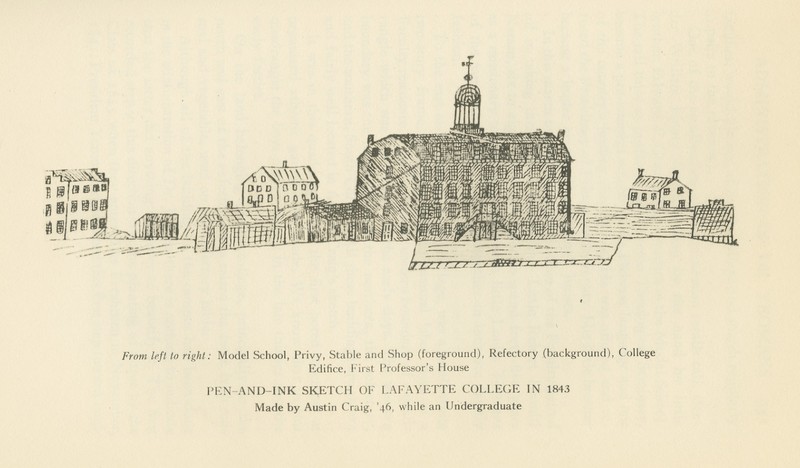The Story of David and Washington
Excerpt from “Two Youths (Slaves) of Great Promise”: The Education of David and Washington McDonogh at Lafayette College, 1838-1844"
- Diane Windham Shaw - Director of Special Collections & College Archives
Soon after its founding in 1816, John McDonogh became a member of the American Colonization Society and in 1825 initiated a scheme to enable his slaves to buy their freedom on the installment plan and go to Liberia. McDonogh was already allowing his slaves to earn money by paying them for their regular work on Saturday afternoons, and, under the new plan, he would bank their earnings until they had enough (it took approximately seven years) to purchase their freedom on Saturday mornings. Then with the money earned on their free Saturdays, they could purchase Fridays, and little-by-little in approximately fifteen years, they could purchase the entire five-and-a-half day work week and full freedom for themselves and their children.[1]
McDonogh was very clear with his slaves that manumission was contingent on going to Africa. “It is your freedom in Liberia that I contract for,” he told them, “I would never consent to give freedom to a single individual among you to remain on the same soil as the white man.”[2] McDonogh ultimately believed that if he could convince other slaveholders that he did not lose money with his scheme, it would be widely adopted. Indeed, in writing about it publicly for the first time in 1842 in the New Orleans Commercial Bulletin, he attested to making money—enough money to “enable me to go to Virginia or Carolina and purchase double the number of those I sent away.”[3]
McDonogh felt it was important to prepare his slaves for freedom in Africa, so during this period of gradual emancipation, he trained slaves in various trades and provided education to many. In teaching his slaves to read and write, McDonogh was in direct violation of a Louisiana law passed in 1830, which made the crime of educating slaves punishable by up to a year in prison.[4] But McDonogh was determined, even petitioning the Louisiana legislature to allow him to educate slaves who were bound for Liberia. Even though he was unsuccessful, he continued to flout the laws.[5] In fact, in his first letter to Walter Lowrie, McDonogh disingenuously denied knowledge of how his slaves had learned to read and write: “You are aware Sir, that, by our laws no owner of a slave is permitted to educate him within the State, under heavy penalties.—(By what means these two youths have learned to read—for they read well, and one of them, I am told, writes well—I do not know.)”[6]
[1] James T. Edwards, ed. Some Interesting Papers of John McDonogh Chiefly Concerning the Louisiana Purchase and the Liberian Colonization (McDonogh, MD: Boys of McDonogh School, 1898), 43-71.
[2]Edwards., 48.
[3] Allan, 49.
[4] Henry A. Bullard and Thomas Curry, comps., A New Digest of the Statute Laws of the State of Louisiana, from the Change of Government to the Year 1841, Inclusive (New Orleans: E. Johns & Co., 1842), 271-72, accessed September 15, 2012, http://books.google.com/.
[5] Allan, 51.
[6] John McDonogh to Lowrie, 1 February 1838, BFMC, Presbyterian Historical Society.

